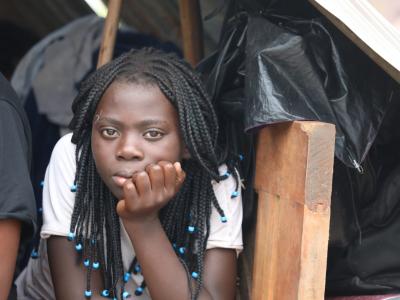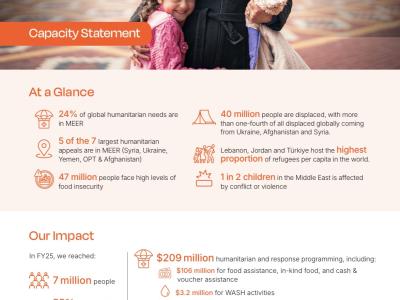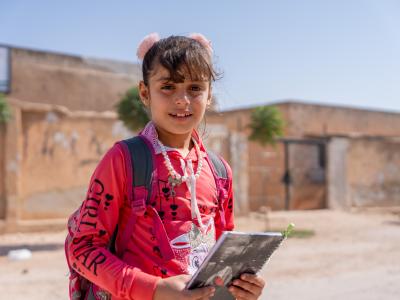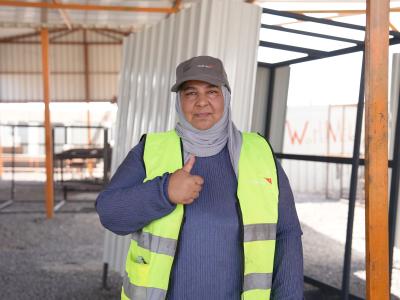publication / January 20, 2026
World Vision Syria Response Annual Report FY25
In 2025, WV Syria Response reached 4.22M people despite crisis, expanding access, meeting communities, and reaffirming its mission to help children thrive.
opinion / February 20, 2026
Mozambique’s Children Are Paying the Price for a Crisis They Didn’t Create
Juma Ignatius, Senior Policy Advisor, Climate Action and Disaster Risk Reduction, Disaster Management, brings our attention to the recent Mozambique floods that are often framed as natural disasters, but in reality, it is a story of global inequality, climate inaction and decades of neglect paid for by children who did nothing to cause the crisis. As emergency aid is repeated and preparedness is ignored, based on the negotiations within the UNFCCC spaces, Juma argues that without a shift to Disaster Risk Reduction, Anticipatory Action and climate-resilient development, disasters will continue to steal childhoods.
publication / March 2, 2026
Disaster Management Capacity Statement
The Middle East and Eastern Europe region faces some of the world’s most complex and long-lasting humanitarian crises, driven by conflict, climate shocks, and economic decline. Despite insecurity, limited funding, and access challenges, World Vision has sustained and expanded its humanitarian response in the region for over 50 years.
article / January 27, 2026
How Amal was Brought Back to School in Rural Syria
After two years without learning, Amal stepped foot in the classroom thanks to a World Vision project in a displacement camp in northwest Syria.
article / March 2, 2026
Private Latrines Project provides Safety and Opportunity in Azraq Camp
After fleeing Syria, Noura's family faced difficulties in Azraq Camp. The Private Latrines project gave them safety, dignity, privacy, and a livelihood.
publication / February 4, 2026
Who are Ukraine Crisis Response's Partners?
A comprehensive list of World Vision Ukraine Crisis Response's 97 local and international partners since February 2022.
press release / March 2, 2026
Urgent Need to Protect Children and Families as Middle East Escalation Intensifies Further, says World Vision
World Vision urgently calls on all parties to immediately de-escalate hostilities in the Middle East and work towards a lasting peaceful resolution.






